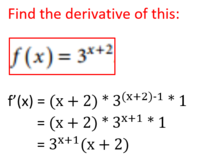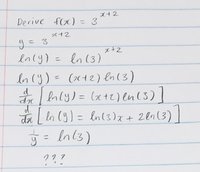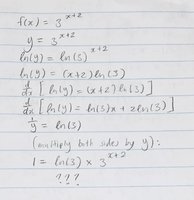How do you calculate the derivative of this without using first principles? I am not sure if I have learnt this or if I'm just being stupid and forgot how to do it...
Please refer to the attachment - I have included my working out using the general derivative method and chain rule.
Thank you!
Please refer to the attachment - I have included my working out using the general derivative method and chain rule.
Thank you!




